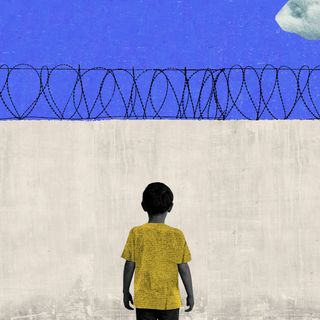In a significant observation, the Madras High Court recently noted the impact gendered stereotypes in cinema have on amplifying rape culture. The court added that women are often objectified which may translate into real-life violence.
The bench, comprising Justices P.N. Prakash and R. Hemalatha, was ruling in the case of two men accused of rape, who sexually abused 29 women while videotaping them and later selling the videos to the public. While upholding the conviction, the court noted: “Men, generally, in our society are glorified for their sexual adventures. They are also forgiven easily.”
“Perversity has encroached the minds of these undesirable elements to that extent, that one wonders about the total absence of conscience and morality.”
The court thus dismissed the accused’s appeal, and upheld the sentence of a lower fast-track court. While the primary abuser was charged on four counts of rape and sentenced to life, the technician was sentenced to six years of rigorous imprisonment.
The court’s acknowledgment of the phenomenon is a small step in the right direction — especially amid a flood of problematic judgments in the past that blamed survivors and called their behavior into question rather than the accused’s. In addition, the bench was also resolute in dismissing the accused’s claim that the acts recorded on the devices may have been consensual.
Related on The Swaddle:
SC Tells Lower Courts Not To Trivialize Sexual Abuse, Perpetuate Sexism
“Treating women as an object of desire and portraying them so in movies and even in soap operas have a detrimental effect on the society,” the bench stated, commenting on the role of movies propagating rape culture.
The role of films in propagating real-life violence and abuse is widely reported and studied. A 2014 United Nations-sponsored global study on women characters in films found that Indian films ranked high on sexualizing women. Further, the normalization of objectification, cat-calling, stalking, and other forms of sexual harassment in films has real-life consequences.
Prominent filmmakers like Mira Nair have noted that the overt sexualization of women prompts larger questions about the message to audiences. “I really question this. I don’t think it leads to any kind of respectful interaction between men and women,” she told BBC.
On the other hand, the trope of the promiscuous male hero serves to normalize the idea that men can behave with impunity; it further perpetuates the toxic narrative of “boys will be boys.”
The judgment is also one of the few that noted the difficulties in survivors coming forward as witnesses. Notably, only six of the 29 women were able to complain, and four were examined as prosecution witnesses, Live Law reported.
“We have no reason to disbelieve the versions of the victims as it requires sheer courage and determination to tell the truth of such nature,” the judgment noted, adding two women “were, in fact, ostracized by their society for coming out in open… there is no need for the victims to tell lies or imaginary stories.”




